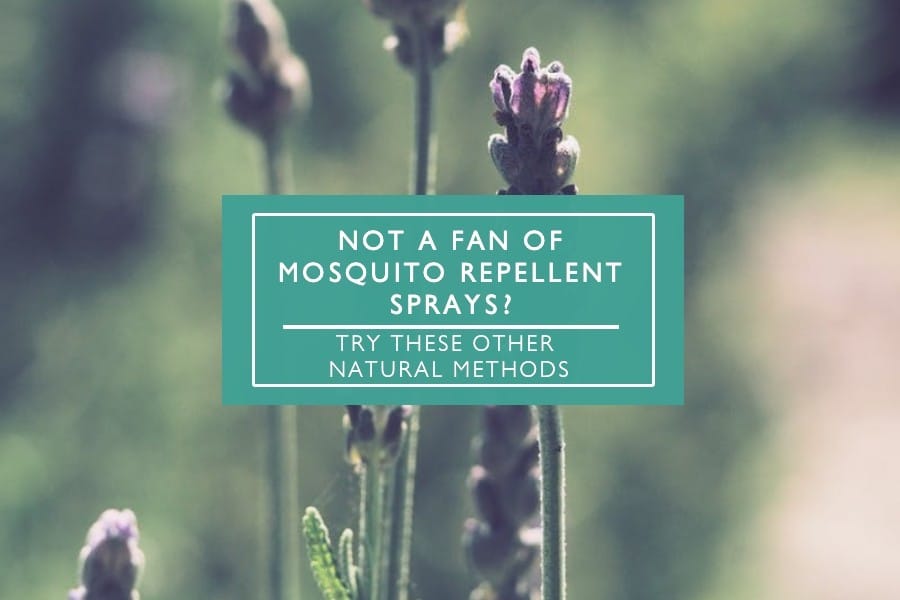Isn’t it annoying when you’re relaxing in your yard during a sunny afternoon and then you hear a sudden buzz? It could be a bee or some insect, but suddenly, a mosquito lands on your arm. When this happens, some people will either get their bug sprays and mosquito repellent devices such as coils or just leave and let these pests enjoy the yard for themselves.
It’s important to get rid of these pests or prevent them from coming near you because they are a health risk - not just to you, but also your pets. Considered as one of the world’s deadliest animals, mosquitoes spread deadly diseases such as West Nile, Yellow Fever, Dengue, Malaria, Zika, and more. That’s why mosquitoes shouldn’t be taken lightly, especially if they’re present in your home.
Aside from diseases, it is also annoying having to suffer from the itchy mosquito bites. There are many ways to repel and control mosquitoes, but unfortunately, most of them utilize chemicals such as DEET that can potentially harm the environment as well as people. But not everyone wants to use chemical-based repellents, so another option is creating a natural mosquito repellent.
For those who prefer non-chemical alternatives, a natural mosquito spray is just one of the solutions. So if you’re not a fan of using citronella and other essential oils or you just don’t want to apply stuff on your skin, don’t worry! There are other ways you can do to prevent mosquitoes from invading your home.
Here are 5 other natural methods you can use to keep mosquitoes away from you, your home, and loved ones.
Repel mosquitoes and add color to your yard with plants
One way to keep your yard free of these pests naturally is by using mosquito-repelling plants. Not only will they deter bugs, but they will also make your lawn smell and look great. Here are some of the plants you can use:
Lemongrass
This plant is effective against mosquitoes because it contains citronella oil, which is a known ingredient that repels these pests. Aside from preventing mosquitoes from feasting on your and your plants, it can be used to decorate your landscaping and an ingredient for adding a lemony taste to salads, soups, and other dishes. You can plant it directly in the ground or pots, but it is recommended to use the latter so that it doesn’t take over your lawn.
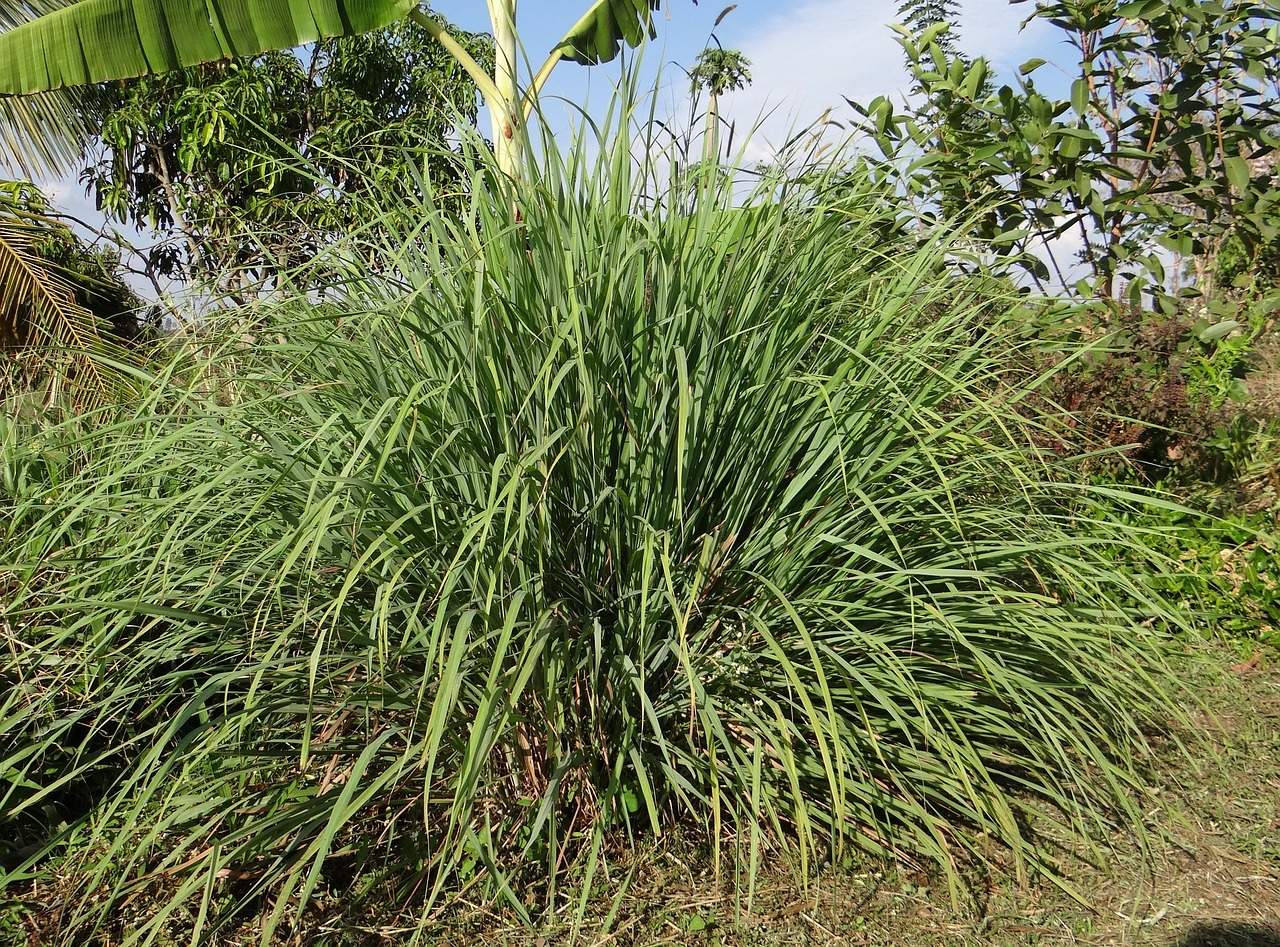
Note: If you’re going to use your backyard for an event, get-together, or party, trim or brush your lemongrass so that it releases more of its scent, making it more effective against mosquitoes.
Citronella

You’re probably already familiar with the name of this plant. Citronella is a very common ingredient used in bug repellents because it has a strong scent, masking our mosquito-attractive smell. They can be used as ground cover or planted in pots if you don’t have enough garden space and want to prevent them from growing in unwanted areas. Just make sure they get enough sun exposure and the soil offers good drainage. Watch out because this perennial can grow up to 5 to 6 feet tall and grow in clumps - you’ll have to maintain it so that your yard won’t look messy.
Marigolds
Doesn’t this plant look great? Also known as tagetes, marigolds are a gorgeous addition to your backyard. Besides your lawn, you can also use this to decorate your windows, doors, deck, balcony, and porch steps! It won’t just make your home look more amazing, but this will help keep the mosquitoes out. These pesky insects don’t like the marigolds’ scent, so you can place them all over your yard and at the entry points of your home. Marigolds are also often used as a border plant to deter tomato bugs and rabbits.
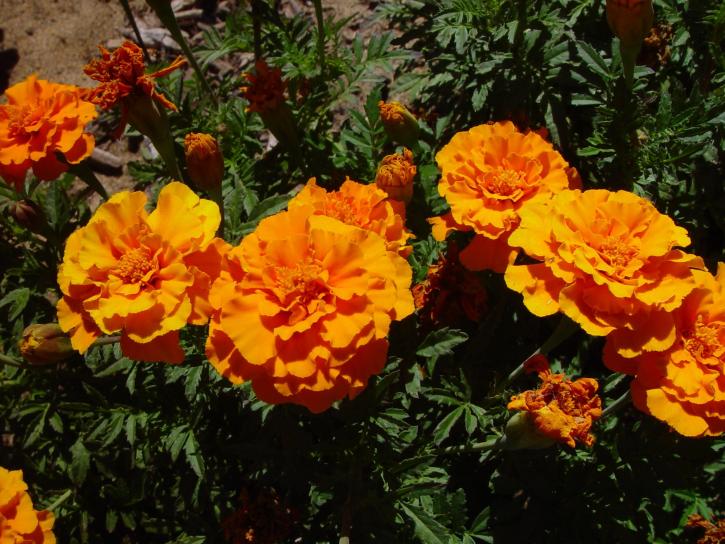
Basil
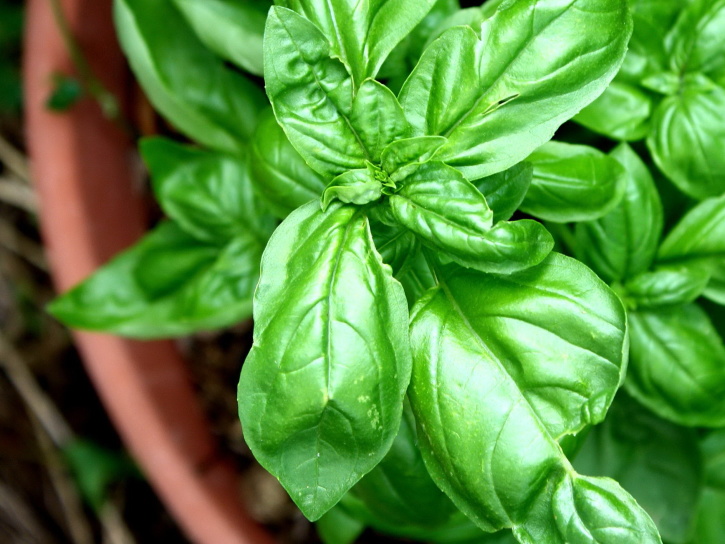
Do you like pesto sauce? You can use sweet basil to create tasty dishes as well as deter mosquitoes. This plant has a strong scent, even without crushing the leaves, that keeps these blood-sucking insects and even flies away. Aside from sweet basil, variants such as cinnamon basil and lemon basil are also effective against these blood-sucking pests.
In general, basil can be grown in a container and thrives well in warm climates. Make sure they get around six to eight hours of sun exposure per day and are planted in moist and well-drained soil. You can even grow different varieties together, decorating your yard with a colorful mix of basil as well as having more options to flavor your dishes.
Lavender
Another beautiful plant you can plant or place all over your home is lavender. It’s gorgeous and smells great for you but not for mosquitoes and gnats. Now that’s a great way to repel mosquitoes! Its scent, which comes from the essential oil on its leaves, also inhibit these pesky bugs’ ability to smell. Not all types of lavender do great in humid environments, but if you find Spanish Lavender and French Lavender, provide good-draining soil so that it can grow properly and to avoid root rot. So after successfully growing it in your garden or pots, take some of it and hang them near entry points such as windows, doors, front porch, and areas where you and your guests would gather.

Note: You can dry its flowers and place them in cabinets and wardrobes to keep the moths out.
Wormwood
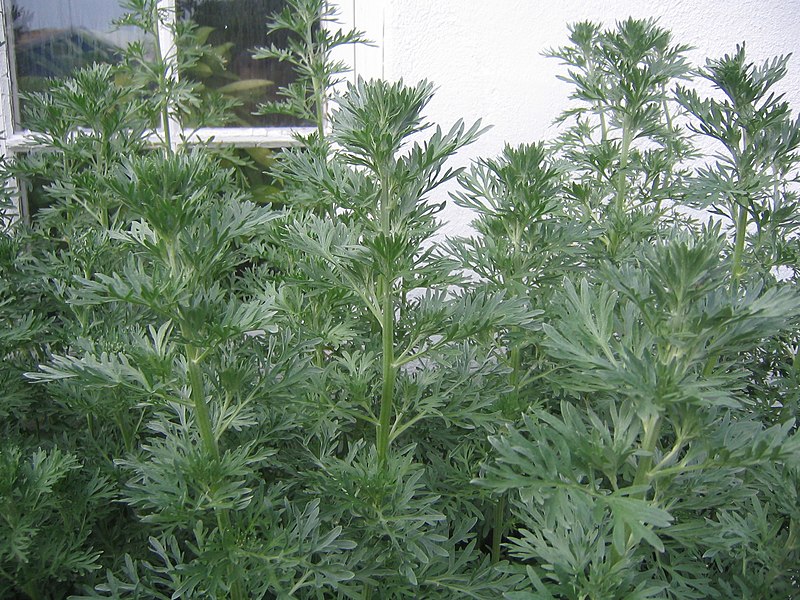
The name doesn’t do justice to this plant. Wormwood may not sound like a pretty plant, but it’s actually the opposite. It has a velvety texture with a greenish-silver color, making it look like it's sparkling. Not only does it look great and repel mosquitoes, but flies, ants, moths, and mice also can’t stand this plant.
Rosemary
For those who prefer a non-flowery odor, rosemary produces a woody scent that not only keeps the mosquitoes but also carrot flies and cabbage moths away. You can plant it directly in the ground or grow it in containers, and you’ll also need to be patient since it grows slowly during the first year. But don’t worry, the following year would be faster, especially if you provide enough sun exposure and soil that drains well. They would also grow in partial shade, and once they do, you can even use them for cooking dishes such as grilled chicken and flavoring for pork.

Note: When you will have a BBQ party or have a fire pit going, soak rosemary in water and then put some in the fire or on the grill to repel pesky bugs.
Bay laurel

If you have problems with mosquitoes as well as pests, you should try planting bay laurel. Mosquitoes and other bugs such as flies and moths don’t like the smell, and it also repels sneaky roaches and mice hiding in your pantry and other rooms.
Lemon balm
Also called bee balm or horsemint, this plant is another common ingredient used in mosquito repellents. It’s a member of the mint family with leaves that contain a repellent compound called myrcene. But it won’t be as effective as citronella as a plant alone as it works better when crushed and used to make a natural mosquito spray. You should also watch out when planting this in your yard. It can grow up to two feet tall or higher and are able to take over your yard. It’s best to plant it in a pot or container to avoid having a messy yard. They will also attract pollinators such as butterflies and bees.

Note: Besides being an ingredient for repellents, it can also be used in refreshing drinks such as iced tea.
Catnip

This is another plant related to the mint family that can be used to repel mosquitoes. It is a perennial with a strong scent, and when placed in the right areas, an effective deterrent to these blood-sucking pests. They usually work in close proximity, or you can try crushing the leaves to make it more effective. Plus, not only does it repel insects and look amazing, but it’s also a nice treat for cats.
Keep them away with garlic
Not only does it work on vampires, but you can also use garlic to repel these blood-sucking pests. Some people don’t like the smell of garlic, the same goes for mosquitoes. If you don’t mind its scent, a simple mixture of garlic and water can keep these bugs away. You can crush a few cloves and then leave them in boiling water for a few minutes.
After mixing garlic and water, you can spray these on your outdoor light bulbs. After it heats up, the scent from the mixture will spread all over your backyard. I suggest spraying hours before your guests arrive because its strong scent might also repel them. Besides your outdoor area, you can also use this inside your homes and garage. You can also scatter dry granulated garlic in areas with tall grass, nearby trash cans, and moist spaces.
Burn coffee grounds
Who knew that you can use coffee grounds to keep mosquitoes away? Burning coffee grounds is a natural way to repel these blood-sucking pests as well as other bugs such as bees and wasps.
How does it work? Since mosquitos have a strong sense of smell, they can’t stand the smell of coffee grounds, especially when it is burned. These become more potent, plus, the smoke scares the mosquitoes away.
When burning coffee grounds, make sure that it is dry and placed in a spot with upwind. You can also add bay leaves to make it more effective.
Remove standing water in your lawn
You can also prevent mosquitoes from taking over your yard by getting rid of standing water on your lawn. This usually becomes the breeding spots of mosquitoes, so eliminating it will be an effective way of keeping the mosquitoes at bay. You should also improve your lawn drainage to prevent having puddles or standing water in your yard.

Aside from puddles on your lawn, they can lay their eggs on almost anything that collects water, whether it be in a small plastic bag in the trash or leftover water in a pet’s bowl. Make sure to clean the gutter, empty buckets and barrels, change the water in birdbaths, maintain the pool, and store toys and other clutter so that it won’t hold water. For those who have a pond water feature, keep the water aerated and bring in some goldfish to eat the larvae.
If these pesky bugs were able to lay their eggs in the puddles or anywhere around your home, you probably won’t be able to notice it since mosquito larvae can be difficult to see with the naked eye. Fortunately, you don’t have to run to the hardware store to kill mosquito larvae. Here are some of the household products you can use to get rid of larvae:
Create an artificial breeze
It sounds complicated, but it just means that another solution to repelling mosquitoes is by using an electric fan. Since mosquitoes are weak fliers, you can place a large fan in your outdoor area, preventing them from coming near you and your guests. Not only will they stop biting you, but it will also make the patio or yard feel cooler!

